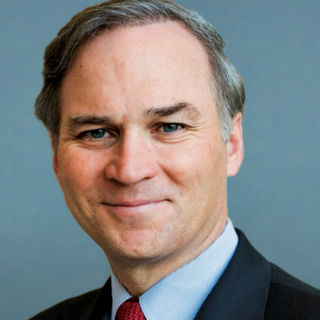
Mrs. Sawyer’s husband suffers from traumatic brain injury (TBI) and post traumatic stress (PTS) as a result of his military service in Iraq. During his service, Mr. Sawyer served in mortuary affairs. He served overseas in the Department of Defense mortuaries in Tallil and Balad, Iraq, and stateside at Dover Port Mortuary, Dover Air Force Base. While in Iraq, he sustained blast related injuries.
For the Sawyers, their toughest journey was not during his deployment, but after Mr. Sawyer returned home. It was a long road to his diagnosis of severe PTS and TBI. During that time, Mr. Sawyer needed 24-hour-a-day supervision – someone to manage his medications, take him to the doctor, ensure he was safe at home, and monitor his mental health. But it wasn’t the Department of Veterans Affairs or Tricare or representatives from the Department of Defense who stepped in to fill that role.
It was Mrs. Sawyer. At 34 years old and with a first- and second-grader at home, she became the primary caregiver to her husband.
She’s not alone.
All across the nation, behind our wounded heroes, there is another army of heroes: veteran caregivers. These are the spouses, parents, family members, and volunteers who provide regular care to those who have served our nation. Many family members of veterans eventually find themselves in this role, especially as their loved ones age. However, since 9/11, those in need of care have become younger and younger. According to the RAND Corporation, there are 1.1 million caregivers specifically serving veterans of Iraq and Afghanistan.
For families of wounded warriors, the difficulty of military service doesn’t stop at the battlefield or even at retirement. After the initial shock of formal diagnoses, many families struggle just to make ends meet. Before Mr. Sawyer required 24-hour care, Mrs. Sawyer taught middle school and high school students for 13 years. She quickly realized that it was impossible to keep her job and care for Mr. Sawyer the way he needed. She left her job, and their income was cut in half. At that point, they found that there were little to no resources available to support caregivers of wounded warriors.
The Sawyers decided to take the system head on. Mr. Sawyer focused on rediscovering his life purpose, taking on new side projects where he could spend time outdoors. He became dedicated to working aggressively with his doctors to manage his PTS and TBI. Instead of returning to teaching middle school and high school, Mrs. Sawyer now teaches other wounded warrior families how to navigate the complicated red tape at the VA and how to manage life as a caregiver. She testified before the Senate Committee on Veterans Affairs and submitted written testimony to the House Committee on Veterans Affairs about necessary policy reforms surrounding military service members and mental health. Little by little, the Sawyers have become more comfortable in their new roles at this phase in their lives.
The role of veteran caregivers, like Mrs. Sawyer, is one to be applauded. As the VA faces backlogs and waitlists and scandals, veteran caregivers remain steadfast. They are standing in the gap, supporting veterans. They truly carry out the sacred mission charged by Abraham Lincoln, to care for him who shall have borne the battle.
At the same time, the role of the veteran caregiver highlights the stark need for updated policies and initiatives designed to support our military heroes when they return home, as well as to support those who provide our heroes with regular and necessary care.
One such example is the caregivers’ guide that Andrea Sawyer worked on, along with Military Officers Association of America and many others, to create a helpful and targeted resource for veteran caregivers: www.moaa.org/caregiver/. The work veteran caregivers provide is often little known. Many of our wounded warriors struggle from mental health issues or brain injuries that aren’t easily noticed by neighbors or coworkers. But the caregivers are there, often serving quietly behind the scenes.
As we hear stories like Mrs. Sawyer’s, we are reminded of the work we have left to do in Washington. It is more than a duty. It is an honor to serve those who have made such enormous sacrifices in the service to this nation.
We are also filled with appreciation. To our veteran caregivers, thank you. You are the unsung heroes. You serve on a different kind of front line. For your service, we are grateful.










